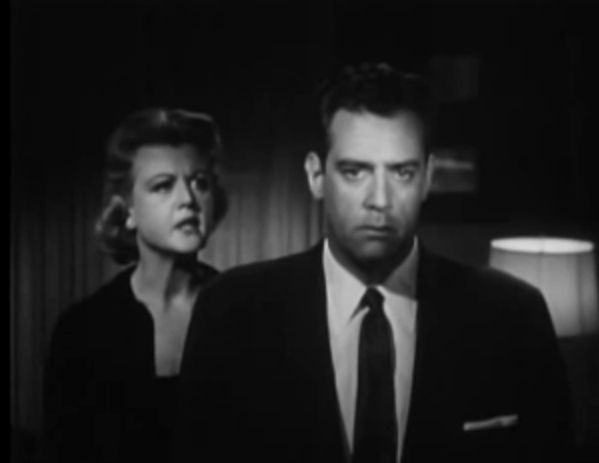Directed by Yuthlert Sippapak
Thailand, 2009
The first part of a trilogy (followed by, you guessed it, Saturday Killer and Sunday Killer) Friday Killer is an odd hodge-podge of allusion and genre bending that very nearly clicks fully together in the end.
Pay Uzi (Thep Po-ngam) is a professional hitman. He’s old, small, fresh out of prison, and not particularly precise with a gun. His name comes from his penchant for spraying his targets with automatic Uzi bullets rather than a singular telescoped sight ala your stereotypical movie assassin. Pay only kills on Friday because a Buddhist monk once told him to do so.
A giant governmental conspiracy greets Pay when he first leaves the prison yard in the form of a knife to the stomach. Someone wants him dead. Unfortunately for Pay, his daughter, who doesn’t know she’s his daughter, also wants him dead because she believes that Pay killed her father…who isn’t really her father.
Sound complicated? It is, and director Sippapak tosses enough loose ideas into his pot that each act becomes progressively thicker with side characters, digressions and cinematic references.
If there’s one thing that Friday Killer is, it’s a lot of fun. Over the course of the film, Pay is rendered both near and far-sighted. He encounters a midget obsessed with Quentin  Tarantino, a gang of particularly ugly brothers intent on revenge for Pay’s insult to their sister, and a group of old residents willingly selling their votes in the upcoming election. The political commentary is broad and without much credence, but it seems to be a reflection of Sippapak’s views of his home country: corruption is rampant, even in non-specific, often ludicrous forms.
Tarantino, a gang of particularly ugly brothers intent on revenge for Pay’s insult to their sister, and a group of old residents willingly selling their votes in the upcoming election. The political commentary is broad and without much credence, but it seems to be a reflection of Sippapak’s views of his home country: corruption is rampant, even in non-specific, often ludicrous forms.
The uneven pacing of Friday Killer is tied to its oscillation between serious melodrama and black-comedy action. The script spends a large amount of screen-time with Pay’s daughter, Dao (Ploy Jindachote). She’s a cop and a lesbian (a fact that is revealed early in the film, though, puzzlingly, Sippapak still has a character within the film state it at the end as though her sexuality is a big surprise at that point).
It’s easy to divide Friday Killer even more specifically: when Dao is onscreen, the film is a drama. When Pay is onscreen it’s an action-comedy. This certainly lends to some bumpy transitions and at times it feels like Sippapak is circling around a whole slew of ideas without ever landing on one. Nevertheless, the freewheeling form is also exhilarating and notably unpretentious. There’s a heart to Friday Killer, and the characters are drawn with far more care and originality than your run-of-the-mill assassin film.
Neal Dhand






